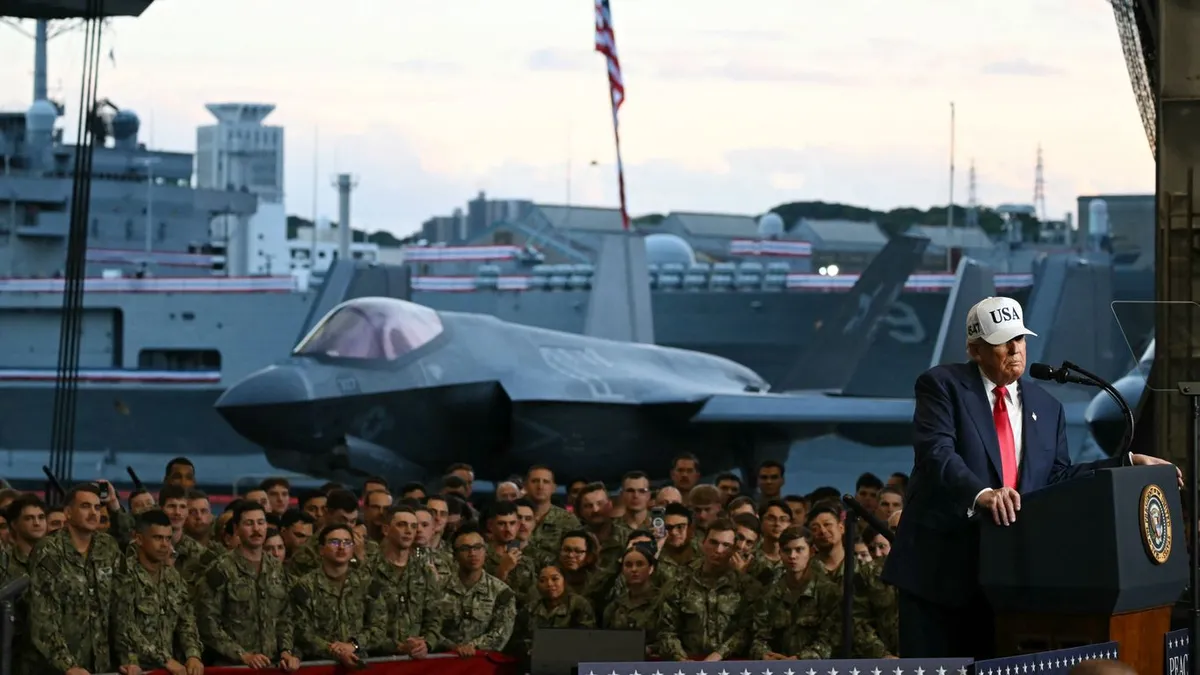
The latest survey analysis from YouGov reveals a significant shift in Republican opinions regarding President Trump’s decision to assemble the military off the coast of Venezuela. The approval rate among Republicans has decreased by 10 percent over the past month, reflecting growing concerns within the party about the president's military strategies. Understanding this decline is crucial as it indicates a potential shift in political sentiment regarding military interventions.
Despite a majority of Republicans still supporting the military show of force, the declining approval comes at a critical juncture. Some Republican lawmakers have started to question Trump’s assertion of having unilateral authority to conduct lethal strikes on vessels allegedly engaging in drug trafficking. This development highlights a growing skepticism about the administration’s military decisions and their implications.
In recent months, U.S. military operations in the Caribbean Sea and eastern Pacific Ocean have resulted in at least 57 fatalities. These actions have occurred with minimal oversight, raising ethical and legal questions about U.S. military engagement. A formidable assembly of warships, drones, bombers, and Marines has been positioned off the coast of Venezuela, alongside confirmation from Trump regarding CIA operations targeting drug cartels within the country.
Foreign policy analysts speculate that President Trump may have aspirations to overthrow Venezuelan leader Nicolás Maduro, who is currently under a $50 million bounty due to his alleged drug trafficking activities. The U.S. has also announced plans to conduct joint military training exercises with Trinidad and Tobago, which Venezuela’s vice president claims are provocations aimed at sparking war in the Caribbean region.
According to the latest YouGov poll, 58% of Republicans currently support the military presence off Venezuela's coast, down from 68% in September. Conversely, support for invading Venezuela's mainland stands at only 28%, with 38% opposed. This contrasts sharply with Democratic and independent voters, where 73% of Democrats and 55% of independents oppose a military invasion.
The Miami Herald recently reported that the Trump administration has identified several military installations within Venezuela that may be targeted. When asked about these claims during a flight aboard Air Force One, Trump denied the reports without providing further details. This denial has fueled speculation about the administration's military intentions.
In response to the Herald’s reporting, Secretary of State Marco Rubio criticized the publication on social media, stating that their sources misled them into producing a false narrative. Meanwhile, a Pentagon spokesperson emphasized the commitment of U.S. troops in combating narco-terrorism, asserting that they are risking their lives to protect the American populace.
YouGov's survey results were derived from two separate surveys involving adult citizens. The first survey included 1,109 respondents conducted from October 17 to 22, and the second included 1,086 respondents from October 24 to 28. The overall margin of error for these surveys is approximately 4%, providing insight into the current political climate regarding military actions in Venezuela.
As Trump’s military operation concerning Venezuela continues to unfold, public opinion may shift further in response to both domestic and international developments. The implications of these military actions will undoubtedly play a significant role in shaping future political discourse within the Republican Party and beyond.